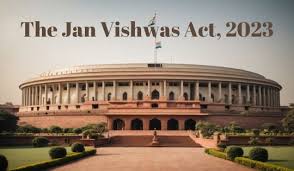Written By: Abhinav Bhalla, Intern
Introduction
In the past few decades, there has been a sharp increase in the use of technology. This increase in technology has increased people’s access to various forms of entertainment and media, such as music, movies and so on. Internet Streaming of media and entertainment has achieved new heights with the introduction of companies like Spotify, Netflix, Amazon Prime, YouTube etc.
India has seen an increasing growth in the usage of these online streaming websites since the beginning of this century. While the broad availability of online streaming of music is an excellent product of digitalisation and a marvel of internet services, it has been realised that not many benefits are enjoyed by the artists in the music industry. They often do not receive requisite amounts of royalties for their hard work.
Scope of Section 31D
Section 31 D was introduced in 2012 with an aim to bring internet broadcasting and streaming services under the purview of the Indian Copyright Act, 1957. Section 31D provides the legal framework and statutory licensing for broadcasting musical and literary works and sound recordings.
This Section, read along with Rules 29 and 30 of the Copyright Rules 2013, permits any broadcasting organisation to stream to its users any music or sound work that has previously been published by invoking a compulsory license.
There have however been differing views with respect to statutory licensing of online streaming services mainly due to the fact that the Copyright Rules 2013 do not explicitly contain the words ‘internet streaming’.
The Department of Industrial Policy and Promotion (DIPP) in 2016, sought to clarify the scope of section 31D, by construing that the term ‘any broadcasting organisation desirous of communicating to the public’ as appearing under the said Section, should not be restrictively interpreted to cover only radio and television broadcasting and should include internet broadcasting and streaming services.
Judicial Pronouncements
Tips Industries Ltd. v. Wynk Music Ltd. & Others
FactsWhile Tips is the owner of a music label in India – Wynk is an online service through which customers can pay a subscription fee and access music. In this regard, Wynk invoked the protection granted by Section 31D of the Copyright Act claiming that they were a broadcasting organization and were entitled to a statutory license under Section 31-D to communicate the work to the public. Thus, Tips filed a copyright infringement suit before the Bombay High Court. |
IssueWhether Wynk can invoke Section 31D of the Act to exercise a statutory license in respect of the Tips repertoire for internet broadcasting. |
JudgmentThe Court found Wynk liable for copyright infringement as their customers can store physical files/electronic copies of Tip’s Repertoire on their devices in violation of the exclusive rights granted to Tips under Section 14(1)(e) of the Copyright Act. Furthermore, with respect to online streaming, the Court held that firstly, statutory licensing under Section 31-D is not available to internet broadcasters as the absence of express words in Section 31-D providing for a Statutory License in respect of internet streaming and/or downloading, was a conscious legislative choice. It was the view of the Court that the object of Section 31-D was to ensure that the public had access to FM radio networks and that the Legislature had not intended to include internet broadcasting within the ambit of Section 31-D but solely to restrict the same to radio and television broadcasting. |
Warner/Chapell Music Ltd. v. Spotify Ab
FactsPrior to its launch in India, Spotify started negotiations with music companies including Warner Chappell Music Limited (WCM) for obtaining licenses over the various music labels on which WCM holds licensing rights. While Spotify was unable to strike a deal with WCM, they still continued to stream their music. Furthermore, Spotify declared its intention to apply for the statutory licensing scheme under Section 31 D of the Copyright Act, 1957. In 2019, Spotify as a broadcaster issued a notice to the Intellectual Property Appellate Board (IPAB) to invoke the statutory licensing provision provided in Section 31 D. Spotify substantiated its claim though Office Memorandum issued by the Department of Industrial Policy and Promotion (DIPP) certifying Spotify as a broadcaster. |
IssueAs the royalty rates were not fixed by IPAB the situation lacked clarity as to whether Spotify had made an authorised move by launching its streaming services before the royalty was clearly defined. |
JudgmentBombay High Court asked Spotify not to enforce the statutory license till the time IPAB fixed the royalty and issued directions, and ordered Spotify to deposit a sum of Six Crore Fifty Lakhs with the High Court. |
Conclusion
Although Section 31 D grants the right to broadcast musical works and sound recording, the point to be considered with online streaming is that once the relevant rights are licensed by the streaming company it would also include the right of reproduce, that is, electronic storage extending to be a part of data transfer including ‘on-demand, downloading and non-interactive streaming’ which is definitely not a part of communication to the public and hence could not be granted under Section 31 D license.
As one might perceive, the decision of the High Court in the case of Tips v. Wynk is just and reasonable considering the limitations that Indian Copyright laws face when it comes to music and online streaming. Section 31 D is not the best way to obtain a license for service providers. In any case, the legislature has to come up with some steps governing statutory licensing scheme that may govern the streaming industry in India because as one could predict online music streaming is the future and India is lagging behind with respect to its governing laws on online streaming.
There is an urgent need for the Copyright Act to be amended to cover internet broadcasting. Such an amendment needs to take into account the genuine rights of the copyright owners, and the larger public interest involved in the communication of such works to internet users by the internet broadcast service providers.





